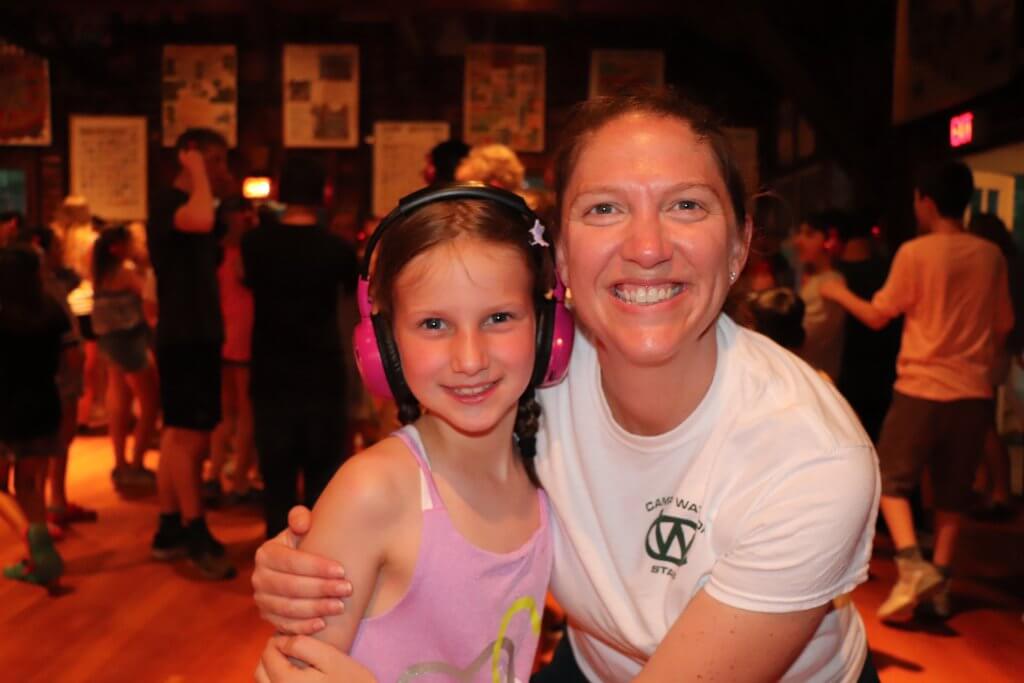
Here are five camp lessons they’ll learn and keep with them for life.
TO HAVE SCREEN-FREE FUN
 Camp is truly one of the last unplugged environments for children that allows them to connect with others. “We grew up in a different time. We weren’t obsessed with our iPhones and iPads,” says Britton Bitterman, director of Camp Watitoh, a coed overnight camp in the Massachusetts’ Berkshires. “One of the greatest benefits of camp these days is for children to be removed from their screens and learn to communicate face-to-face, which they don’t necessarily know how to do. This is a skill they’ll need throughout their lifetime from friendships to romantic relationships to the workplace. Our campers enjoy the break from social media and value the emotional connection they form here at camp.”
Camp is truly one of the last unplugged environments for children that allows them to connect with others. “We grew up in a different time. We weren’t obsessed with our iPhones and iPads,” says Britton Bitterman, director of Camp Watitoh, a coed overnight camp in the Massachusetts’ Berkshires. “One of the greatest benefits of camp these days is for children to be removed from their screens and learn to communicate face-to-face, which they don’t necessarily know how to do. This is a skill they’ll need throughout their lifetime from friendships to romantic relationships to the workplace. Our campers enjoy the break from social media and value the emotional connection they form here at camp.”
INDEPENDENCE
Charles Maltzman, owner and director of Willow Lake Day Camp in Lake Hopatcong, says that self-sufficiency happens at camp every day. “Camps offer elective activities for children as they get older to help build independence,” Maltzman says. “They get to decide if they want to do jewelry making with their best friend or cooking with someone they don’t know with the chance of meeting new friends. Both decisions are awesome. One is trying something new with Sally, or making the decision that you don’t need to do an activity with a friend.” Bitterman feels that children are so connected to their parents from the moment they start daycare or preschool, and this gives them the chance to do things on their own and gain the camp lessons they need. “From early on in life, parents receive daily reports and videos, learning everything about what’s happening every minute of the day,” Bitterman says. “But at camp, children are able to try new things and step outside of their comfort zone, gaining independence from their parents and home life, which is instrumental in a child’s development.”
TO APPRECIATE THE VALUE OF MENTORS
Camp provides children with the opportunity to learn from adults other than their parents. “Children are surrounded by camp directors, counselors and head counselors, learning to trust other adults to help with friendship issues or a new activity,” explains Bitterman. “Oftentimes, people will talk about a teacher or professor who was a mentor in their life, but that doesn’t usually happen until later in life. At camp, children have 20- or 21-year-old role models who are able to be like a big brother or sister to help guide them through the challenges of childhood.” Maltzman says camp counselors can often get a child to try something that Mom and Dad can’t. “Parents are parents, and they usually can’t get their kid to try a new activity like soccer, or a new food like broccoli. But when their 22-year-old counselor says it, children react in a different way to them.”
CONFIDENCE
Camp provides many opportunities for kids to feel good about themselves. “Every camper gets their 15 minutes of fame at camp, where someone says ‘wow, you are good at that.’ There is something for everyone at camp. Maybe someone isn’t the best athlete, but they are great in the talent show bouncing on a pogo stick reciting a poem,” says Maltzman. “Everything camps do is intentional and sets a child up for success. When a camper tries something, there is a plan for them if they don’t succeed. If they get to the top of the zip line in the first week of camp but just can’t jump, there will be another opportunity in week two or three. Camp is a less pressured environment, and the only peer pressure is the positive peer pressure from friends saying, ‘you can do it.’”
RESILIENCY
Life is full of ups and downs, and it’s important to prepare our children for the times when things aren’t going to go their way. Of all the camp lessons they can learn, this one gives them grit. “Today’s generation of children are not as resilient as they were in the past because many parents don’t allow them to fail,” says Bitterman. “Camp is a safe environment to make mistakes and learn from those mistakes. There will be times at camp when a camper is missing home, or a moment on the sports field that wasn’t great, but these all become opportunities for children to test their resilience.”
—Jess Michaels is the director of communications for the American Camp Association (ACA), NY and NJ, a not-for-profit organization dedicated to enhancing the summer camp experience. For free, one-on-one advice when searching for a camp, call the ACA at 212-391-5208.
———
The above article was originally published by NJ family on January 19, 2020. It can be found here: https://www.njfamily.com/5-camp-lessons-the-kids-will-never-forget/



